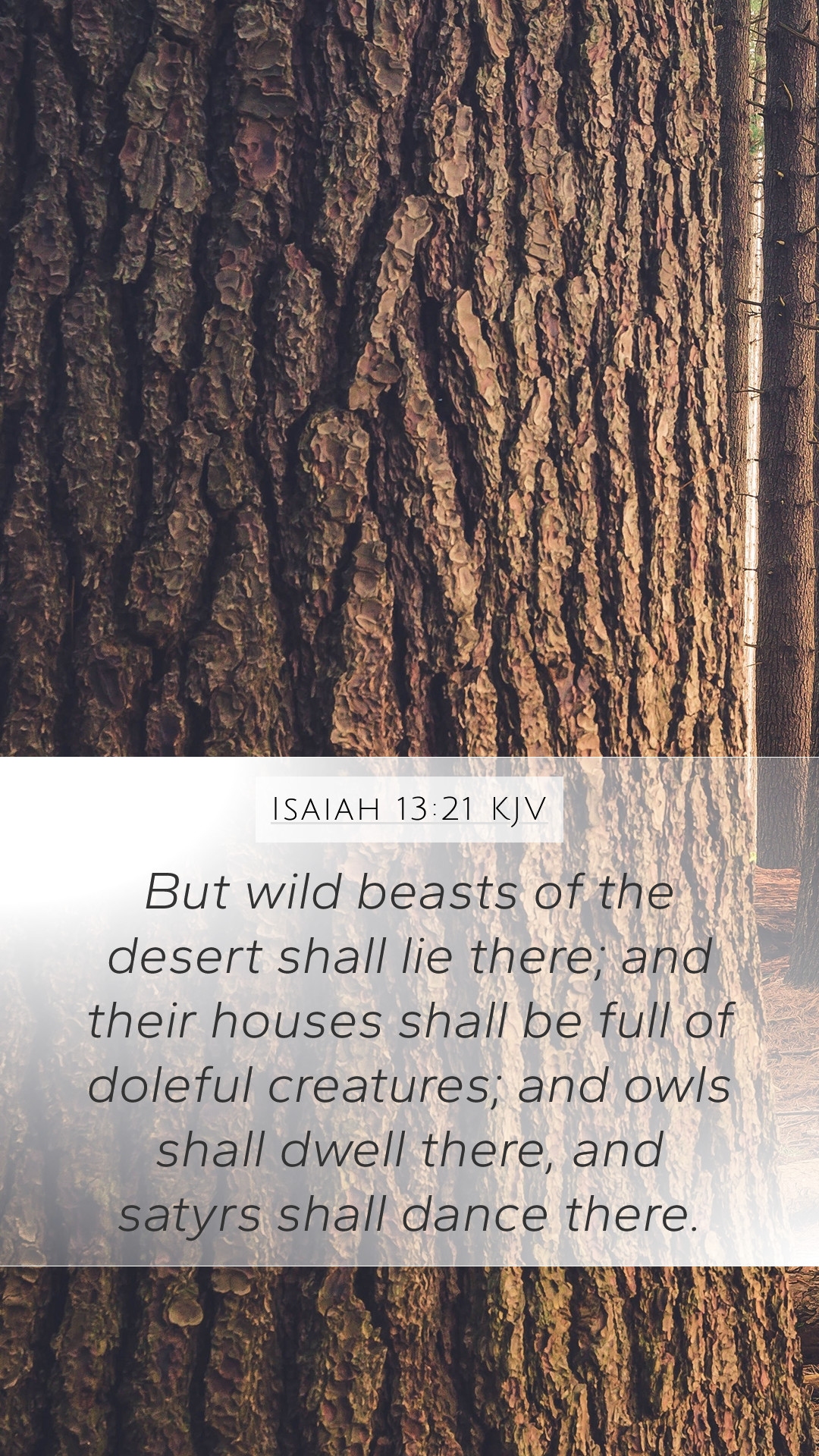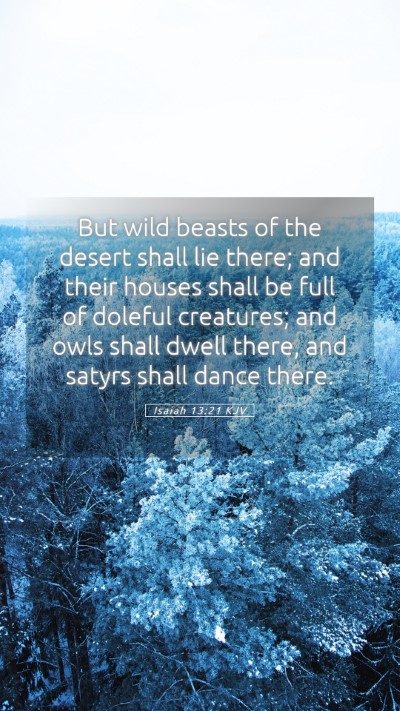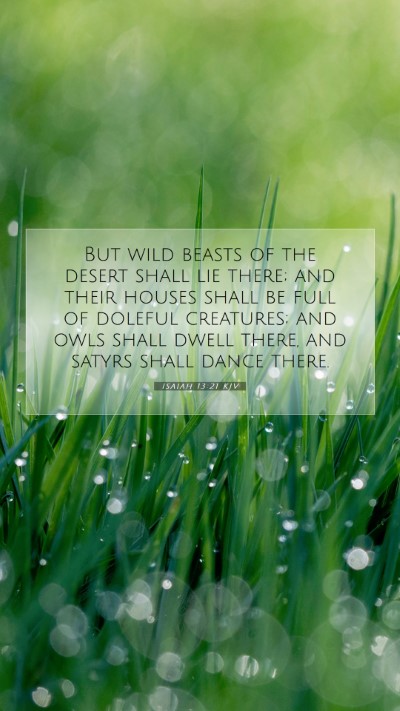Understanding Isaiah 13:21 - Bible Verse Meaning and Commentary
Isaiah 13:21 states:
"But wild beasts of the desert shall lie there; and their houses shall be full of owls; ostriches shall dwell there, and devils shall dance there, and satyrs shall cry to their fellow; the time of their visitation is so." (Isaiah 13:21, KJV)
This verse is part of a prophecy about the destruction of Babylon and serves as a poignant reminder of the transient nature of human achievement and the ultimate sovereignty of God over nations.
Context and Background
To provide a thorough bible verse commentary on Isaiah 13:21, it's essential to understand the historical backdrop against which the prophecy was delivered. Isaiah, one of the major prophets of the Old Testament, addressed issues of disobedience, divine judgment, and the hope of restoration. The surrounding chapters discuss the impending judgment on multiple nations, including Babylon, which was known for its opulence and pride. This passage starkly contrasts the former glory of Babylon with its coming desolation.
Verse Interpretation and Significance
Isaiah 13:21 is rich in symbolic meaning and can be unpacked through various dimensions:
-
Judgment and Desolation: The imagery of wild beasts and owls inhabiting the desolate city illustrates complete abandonment. As Matthew Henry notes, this signifies how the once-thriving metropolis will become a wasteland, inhabited by creatures that flourish in emptiness.
-
Symbolism of Animals: The mention of 'devils' and 'satyrs' introduces a supernatural aspect to the desolation. According to Albert Barnes, these references symbolize the chaos and evil that will claim the space once occupied by human civilization. The presence of these entities points to a spiritual vacuum left in the absence of God's order.
-
Prophecy Fulfilled: This prophecy serves as a historical reflection on the fall of Babylon. As Adam Clarke explains, the power and glory of Babylon eventually crumbled, validating the prophecy's truth as a demonstration of divine authority over earthly powers.
Biblical Exegesis and Insights
In analyzing Isaiah 13:21, it is crucial to engage in biblical exegesis to extract deeper meanings and messages for contemporary readers. The desolation of Babylon serves a dual purpose: as a warning to the proud and as a reminder of God's justice:
-
Warning to Nations: The fate of Babylon warns nations and individuals against arrogance and rebellion against God. This underlines the principle that no entity stands outside of God's judgment.
-
Hope of Redemption: Even amidst judgment, there is a thread of hope in the overarching narrative of Isaiah. While the verse emphasizes desolation, the greater context includes promises of restoration for God's people (Isaiah 14:1-2). Thus, the meaning of this Bible verse can also guide believers in understanding the balance between justice and mercy in God's plan.
Applying Scripture to Daily Life
The lessons from Isaiah 13:21 extend beyond its historical context, offering insights applicable to today's life:
-
Humility before God: This verse illustrates the importance of humility. Personal ambition and power, if not aligned with divine will, could lead to ruin.
-
Understanding Consequences: Just as Babylon faced judgment, individuals are reminded to reflect on their actions and their spiritual health.
-
Spiritual Vigilance: The presence of evil in desolation serves as a warning to remain spiritually vigilant against chaos that can fill a void left by neglect of faith.
Cross References
Isaiah 13:21 relates closely to several other scripture passages that echo themes of judgment, desolation, and warnings against pride:
- Revelation 18:2: A prophetic account of the destruction of Babylon.
- Jeremiah 50:39-40: Similar themes of desolation and eerie silence in the fate of Babylon.
- Psalm 102:6-7: A poetic reflection on the desolation that mirrors Isaiah’s imagery.
Conclusion
Isaiah 13:21 encapsulates a powerful message about the consequences of national pride, divine judgment, and the eerie transformation of a once-thriving city into a haven for wild beasts. Through comprehensive bible study insights and reflection, readers can draw lessons about humility, the fleeting nature of worldly power, and the hope that exists even in statements of divine judgment.
For those exploring the understanding of Scripture through group discussions, online Bible study, or personal reflection, this verse serves as an essential component in grasping the broader foundational teachings of the Bible concerning God's sovereignty and the inevitable fulfillment of His word.


